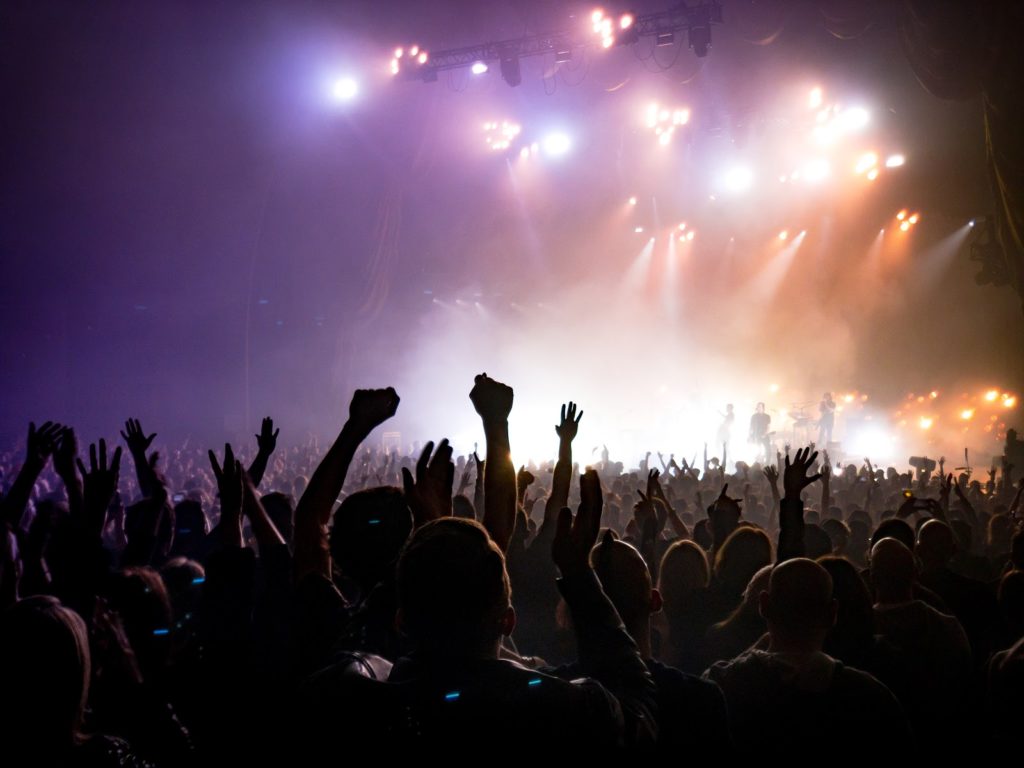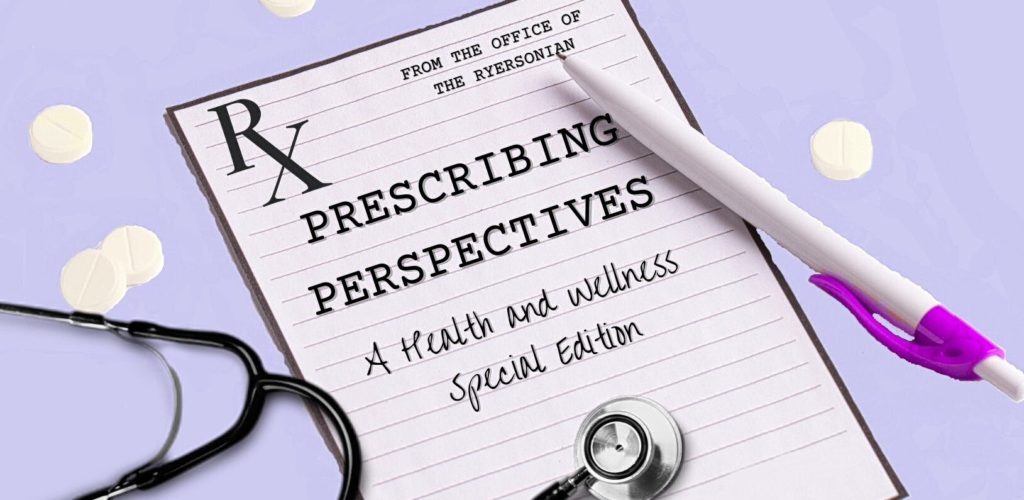Over The Bridge is a non-profit organization stepping up to help musicians struggling with mental health and addiction

It’s easy to picture the roaring crowds and backstage parties that come with music stardom. But the piles of cash, fancy houses and expensive cars are luxuries enjoyed by only a minority of performers and recording artists.
In reality, the lifestyle of professional working-class musicians comes with a lot of potential for various struggles, according to Ace Piva, founding partner and executive director of Over The Bridge (OTB).
Piva’s Toronto-based non-profit organization aims to provide counselling and other types of help to musicians who experience low self-esteem, burnout, mental illness and addiction — areas in which Piva believes musicians require special treatment.
“There are certain things that a lot of people in the general public don’t understand about the touring lifestyle,” he said. “If you do research into self-care, you’ll see ‘get eight hours of sleep, balance your work-home life’, but when you’re on the road it’s 100 per cent on the road or 100 per cent at home. There’s no balance.”
Piva was born and raised in Hamilton, and took up drumming at a young age. He usually found himself driving his bands and their equipment to and from gigs, so he wasn’t drinking or using any substances. Still, he pointed out that it can be difficult for recovering addicts to maintain sobriety when so much of the music lifestyle involves exposure to drugs and alcohol.
In 2019, The National Survey on Drug Use and Health (NSDUH) published findings about substance use in various occupations. They found that the arts and entertainment industry had the third highest overall rates of past-year substance use diagnoses at 12.9 per cent. NSDUH also reported that 11.5 per cent of the individuals in the arts and entertainment industry had reported past-month heavy alcohol use, and 13.7 per cent reported past-month illicit drug use, making the occupation second on the list for that statistic.
Piva started OTB in 2017, after working as an addictions counsellor. Originally, it was only a Facebook group meant for peer support, but Piva realized he could make it into something bigger. Now, the organization provides peer support groups, workshops, education and even facilitates events.
In March, OTB partnered with event organizer Lemmon Entertainment to present The Lost Tapes Live, a virtual broadcast that featured AI-created songs meant to sound like what the members of the 27 Club might have come up with were they still alive today.
The 27 Club is a group of musicians who died of drug and alcohol-related causes at age 27. In 1938, blues artist Robert Johnson, who was infamously rumoured to have traded his soul to the devil in exchange for his musical skills, died under mysterious circumstances.
“At the time of these artists’ passing, they had large fan-bases and were often at the top of their game,” said Piva. “When you’re 27 and you’re at that stage of your career, and you’ve been given the weight of the world, people are constantly looking for these escapes to normalize these feelings. It’s kind of a normal reaction to an abnormal situation.”
The 27 Club became a phenomenon decades later when four more world-renowned artists died at the same age. Founding Rolling Stones guitarist Brian Jones drowned in his swimming pool in 1969, then the following year, both Jimi Hendrix and Janis Joplin died. In 1971, the Doors frontman Jim Morrison followed. All were aged 27. Later, in 1994 and 2011, Nirvana’s Kurt Cobain and British singer Amy Winehouse joined the club, respectively.
The Lost Tapes Live has received a massive amount of media attention, even landing an article in Rolling Stone
Amy Di Nino is a psychotherapist and multi-instrumentalist who serves as one of OTB’s board members.
Di Nino said that musicians recovering from addiction can have a hard time because of the constant presence of alcohol and drugs in music scenes. When touring bands are playing in bars every night for patrons who are drinking, it can be difficult to avoid alcohol.
“Alcohol is something that is a very natural thing,” she said. “You’re in an environment that is generally conducive to people coming to drink to enjoy a show, so it’s very much at the ready.”
Di Nino also pointed out that it is very common for musicians to be paid or partially paid in drink tickets, which can be difficult to turn down.
“If you enjoy alcohol or you have a susceptibility to maybe having too much, it can be a real struggle,” she said. “You’re there to do your job, but if you have trouble with alcohol and you go to work in an office building every day, it’s not in your face all the time. If you go to work and you go to play a gig, it’s everywhere.”
Both Piva and Di Nino think there could be solutions to the overbearing presence of alcohol.
“I don’t ever see a festival sponsored by a water company, or a juice company,” said Piva. “It’s always alcohol-related. So I would love to see other options within the music community when it comes to those choices.”
Piva also said it would be beneficial for venues that facilitate touring acts to have agreements with nearby gyms, so artists can go and exercise instead of partying, and for artists to be more health-conscious when they put together their backstage riders.
Di Nino said she has had her own struggles with alcohol in the past, and now that she is sober, she looks for other sober people at shows to hang out with so she is not the only non-drinker surrounded by people who are drinking.
“I always just try to find someone I can hang out with, because I can guarantee there’s someone else there,” she said. “I joked with a client a few weeks ago and were like ‘wouldn’t it be cool if you could just wear a badge or something that says you’re sober,’ then you could just go hang out with all the sober people, because that’s what sober people are looking for – other sober people to do their thing with.”
Di Nino said she is comfortable simply asking if anyone else at an event is also not drinking, and she will approach people she sees giving away their beer tickets. While people like Di Nino are comfortable with their choice not to drink or use any substances, it is much more difficult for people who are trying to quit or have recently quit.
“It’s just too easy to access,” she said. “It’s really hard to be in a place where you can be really grounded in not using it.”
Di Nino said she has seen a shift since the days when she first started touring, though, and it is easier now to choose non-alcoholic beverages and stay away from drugs at music events. For recovering addicts, it is important to have a strong support system and the necessary tools to resist urges to dive back in, she said. This is something that OTB aims to provide.
“I don’t need to be rich,” said Piva. “I just want to help people.”

